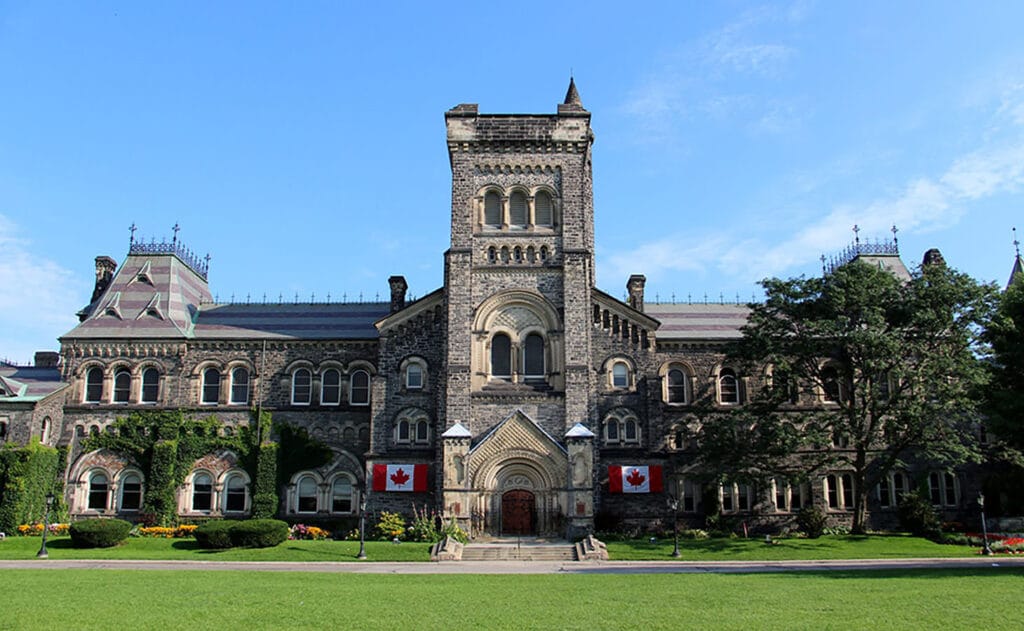Canada welcomes international students to gain valuable work experience alongside their studies. Studying in Canada offers a unique opportunity to combine academic pursuits with practical work experience, allowing you to build your skills and network within the Canadian workforce. This Canadapass page provides an overview of how you can work in Canada both during and after your studies, helping you navigate the relevant policies and regulations.
Work Off-Campus
International students with valid Canadian Study Permits may be eligible to work for off-campus employers, supporting their financial needs and gaining valuable Canadian work experience. However, specific eligibility criteria and limitations apply.
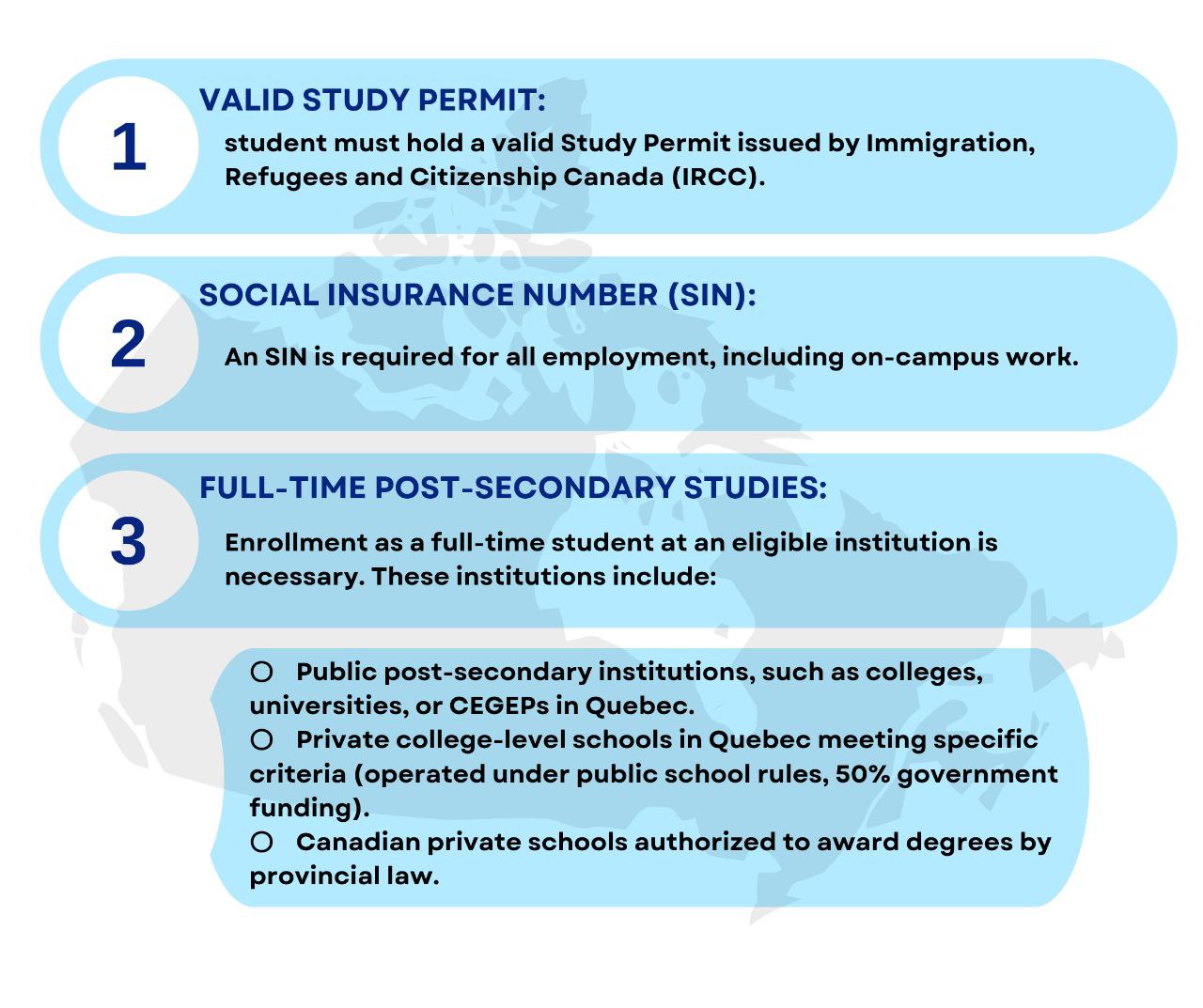
Eligibility:
● Valid Study Permit: An international student must hold a valid study permit issued by Immigration, Refugees and Citizenship Canada (IRCC).
● Enrolled at a Designated Learning Institution (DLI): Full-time studies at a DLI are mandatory. Find a comprehensive DLI list on our dedicated page.
● Active Studies and Good Standing: Maintaining satisfactory academic progress as defined by the student’s institution is crucial.
● Program Duration and Outcome: The academic, vocational, or professional training program must be at least six months long and lead to a degree, diploma, or certificate.
● Social Insurance Number (SIN): Obtaining a SIN is essential for off-campus work.
Limitations:
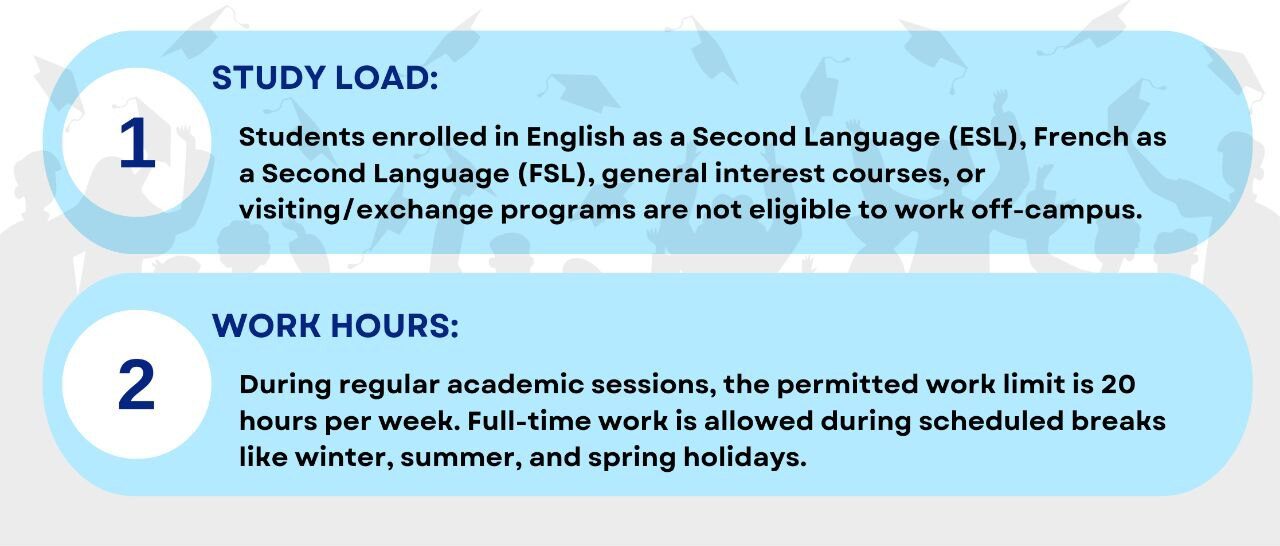
● Study Load: Students enrolled in English as a Second Language (ESL), French as a Second Language (FSL), general interest courses, or visiting/exchange programs are not eligible to work off-campus.
● Work Hours: During regular academic sessions, the permitted work limit is 20 hours per week. Full-time work is allowed during scheduled breaks like winter, summer, and spring holidays.
Note: Due to Canada’s current labor shortage, a temporary policy allows eligible international students to work more than 20 hours per week during regular academic sessions until April 30, 2024.
Change in Status:
Students who lose full-time study status or no longer meet the eligibility criteria must cease off-campus work. However, an exception may apply to students initially registered full-time who transition to part-time studies during their final semester due to program requirements.
Work On-Campus
International students holding valid Canadian Study Permits may be eligible to work on the campus of their registered educational institution. Specific criteria and limitations apply.
Eligibility:
● Valid Study Permit: A student must hold a valid Study Permit issued by Immigration, Refugees and Citizenship Canada (IRCC).
● Social Insurance Number (SIN): An SIN is required for all employment, including on-campus work.
● Full-Time Post-Secondary Studies: Enrollment as a full-time student at an eligible institution is necessary. These institutions include:
○ Public post-secondary institutions, such as colleges, universities, or CEGEPs in Quebec.
○ Private college-level schools in Quebec meeting specific criteria (operated under public school
rules, 50% government funding).
○ Canadian private schools authorized to award degrees by provincial law.
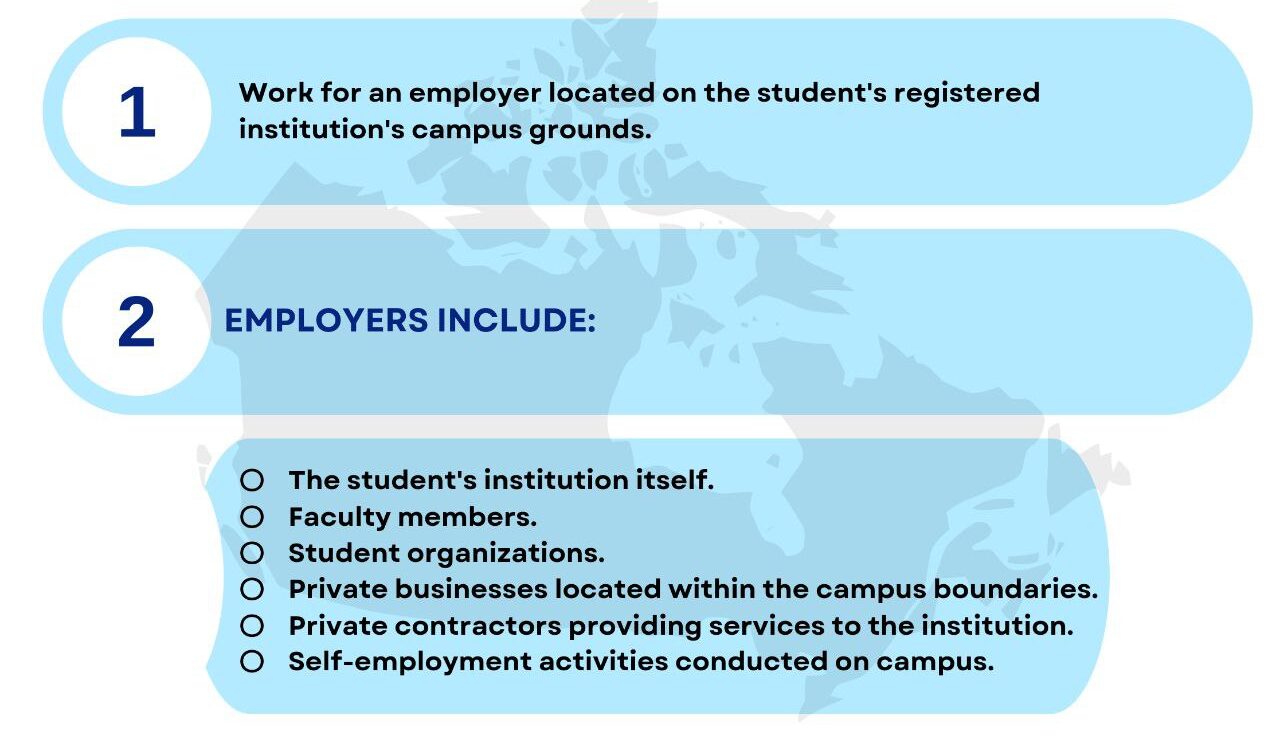
On-Campus Work:
● Work for an employer located on the student’s registered institution’s campus grounds.
● Employers include:
○ The student’s institution itself.
○ Faculty members.
○ Student organizations.
○ Private businesses located within the campus boundaries.
○ Private contractors providing services to the institution.
○ Self-employment activities conducted on campus.
Professional Opportunities for International Students in
Canada
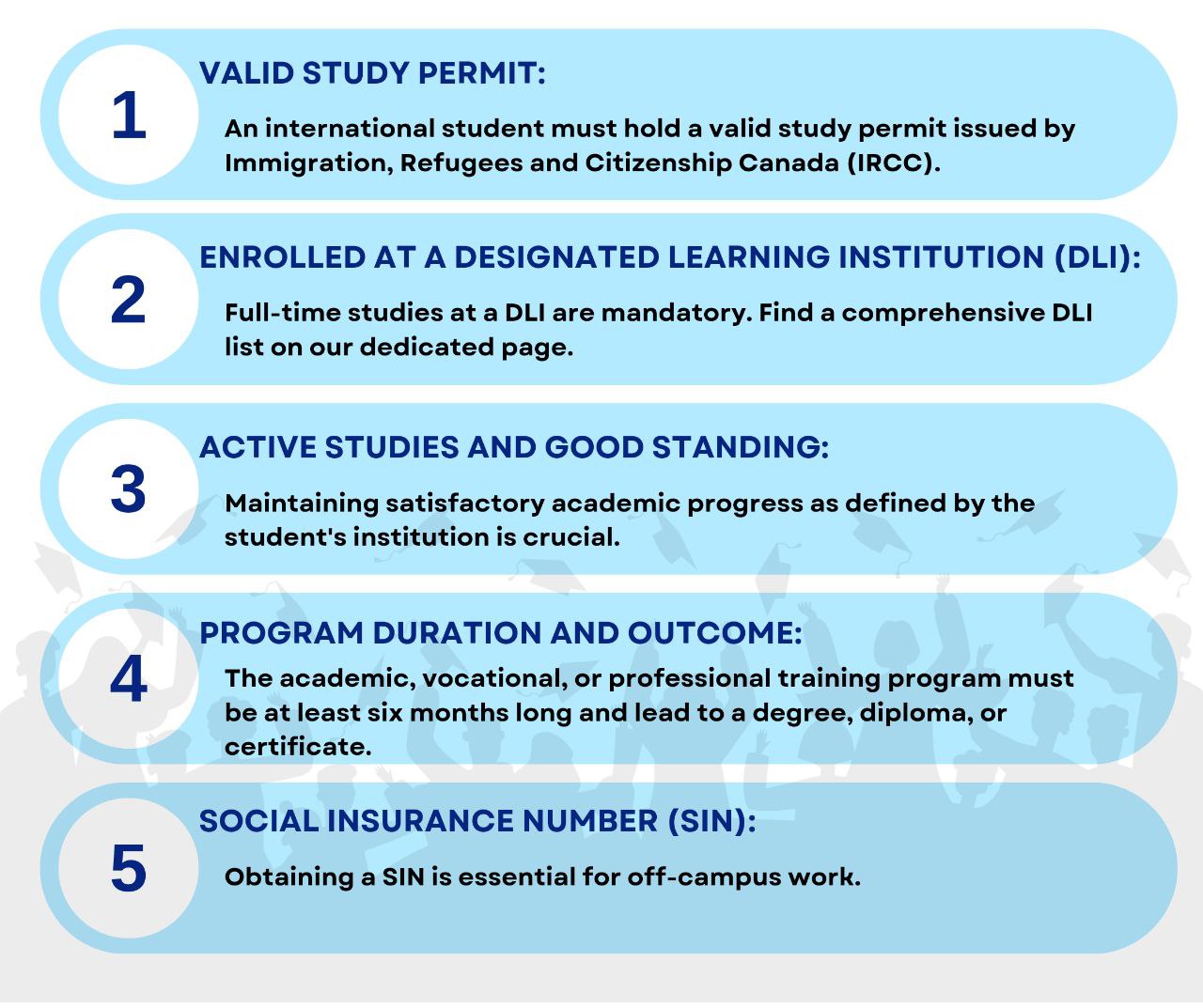
Academic Work Integration:
Students enrolled in Designated Learning Institutions (DLIs) with mandatory co-op or internship placements can participate in these
valuable experiences by obtaining a Co-op or Internship Work Permit alongside their valid study permit. This opportunity allows them to gain practical Canadian work experience directly related to their field of study.
Post-Graduation Career Advancement:
Upon successful completion of their DLI program, international students are eligible to apply for a Post-Graduation Work Permit.
This permit enables them to remain in Canada and work for up to the duration of their study program, with a maximum of three years, gaining further Canadian experience and enhancing their professional skills for skilled positions.
Supporting Partner Career Goals:
In some instances, spouses or common-law partners of international students engaged in full-time DLI studies may be eligible for an Open Work Permit. This permit grants them the freedom to work in any occupation
within Canada, offering valuable financial support and the opportunity to
pursue their own career aspirations while their partner completes their
studies.





